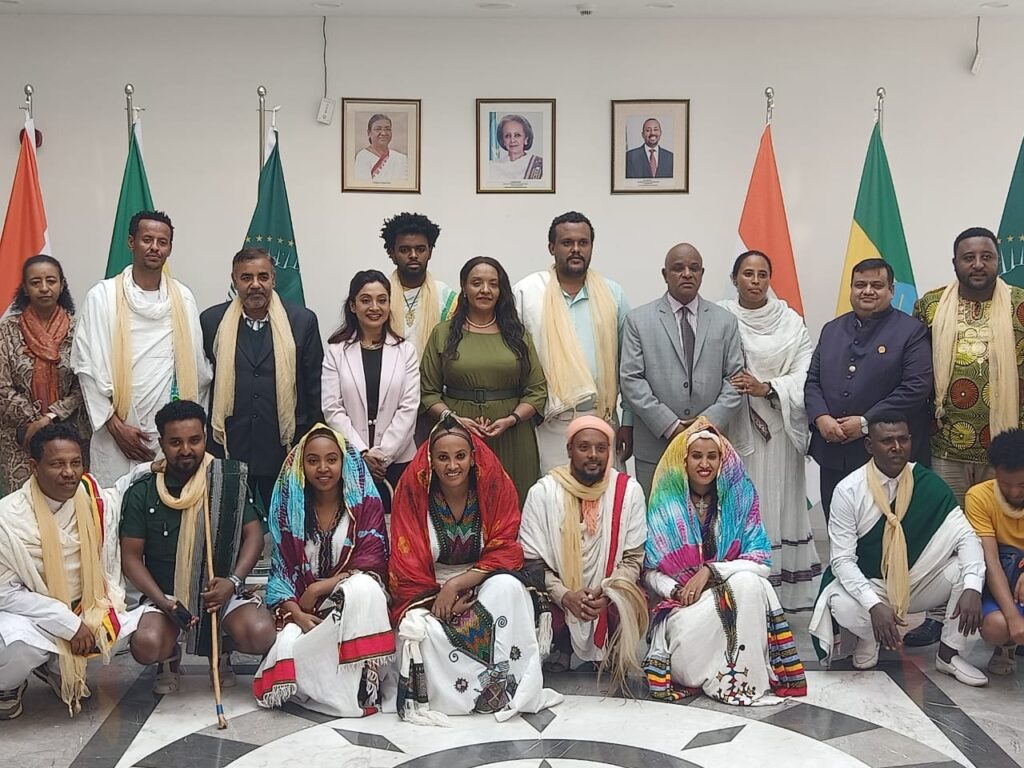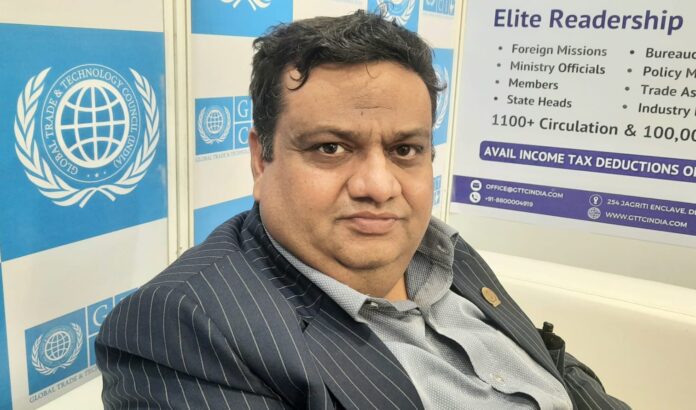The Global Trade and Technology Council (India), known as GTTCI, stands out as one of the nation’s foremost business organizations. They facilitate business expansion through strategic initiatives such as policy advocacy, business matchmaking, and creating an investor-friendly environment.
Unlike conventional chambers of commerce, GTTCI distinguishes itself by actively supporting and promoting progressive collaborations within the private sector. These collaborations help advance the national and global business landscape, fostering professional development, and driving technical innovation.
As a proactive and comprehensive point of contact for enterprises, GTTCI facilitates market entry, business expansion, and cross-border transactions. Moreover, the organization serves as a crucial resource for businesses seeking to navigate the intricacies of international trade.
Dr. Gaurav Gupta, the Founder President of GTTCI, shares valuable insights in an interaction with The Interview World. During the discussion, he illuminates how the organization catalyzes relationships among countries and embassies, thereby enhancing trade and technology partnerships. Here are key excerpts from his enlightening interview.
Q: Tell us about the activity of your organization.
A: The Global Trade and Technology Council of India has been operating competitively for over two and a half years. With over 100 diplomatic missions in New Delhi, our primary objective is to bridge the gap between traders and embassies. Our focus extends beyond promoting Indian culture and tourism. We actively facilitate trade promotion with countries globally, including Latin America, Africa, South East Asia, CIS countries, and Europe. Moreover, we maintain connections with embassies such as Japan, China, and Korea.
Handling numerous queries and facilitating substantial work with embassies, we recently hosted trade delegations from Russia and Vietnam. This recognizes the potential these upcoming, developing countries hold for the Indian market. Through our direct access, we established the GTTCI India Forum, initially involving seven countries. They include Uruguay, Mongolia, Mauritius, Ethiopia, Swaziland, Suriname, and the latest addition, Myanmar. Moreover, this forum facilitates one-to-one interactions among embassies, ambassadors, and traders.
Apart from these initiatives, we regularly organize a variety of events, including felicitations, B2B meetings, and tourism gatherings. Our reach extends beyond Delhi. We inaugurated a branch in Maharashtra, inaugurated by the Hon’ble Governor on November 7th at the Governor House. Our robust team in Maharashtra covers key cities such as Bombay, Nasik, Pune, and Nagpur. Expansion plans include reaching states like Uttar Pradesh, Rajasthan, Madhya Pradesh, Karnataka, and Tamil Nadu.
Acknowledging the globalized nature of business, we have members from Dubai and other countries. With India’s growth on the global stage, our organization has become a focal point for those interested in India. In the upcoming month, we are planning to conduct a tourism meeting with the Mauritius Embassy and a joint meeting with the pharmaceutical industry, showcasing the diverse range of activities we facilitate.
Q: How you are different from other associations?
A: Incomparable is our approach. Rather than engaging in competition, we focus solely on our work, drawing from our extensive experience and connections. With personal ties to over six hundred diplomats and more than a hundred embassies, our interactions hold significant value. People appreciate the direct connections we foster.
Over the years, we’ve established numerous embassies as part of friendship associations within this chamber. Our commitment extends to organizing a multitude of events, whether celebrating Dussehra or Diwali, thereby opening doors for more than 30 embassies. Inside the embassy walls, we’ve hosted a plethora of events in recent years.
These initiatives have not only allowed us to make our way into embassies for the first time but have also provided Indian traders and the public with abundant opportunities. It’s a testament to the success of our endeavors and the comprehensive support we offer.
Q: What kind of opportunity are you bringing to your members after opening the gates to the different embassies?
A: We serve as the primary point of contact, aiming to establish a direct connection with the embassy. Moreover, we want to emphasize that we are not acting as intermediaries. Our goal is to facilitate direct connections for those who excel in their work and businesses, whether they are looking to expand to Africa or any other country. Success hinges on merit, and if your product demonstrates potential, you will enjoy direct access.
In a recent event, we hosted a delegation from Vietnam, comprising individuals from various industries. The Vietnamese delegates engaged directly with our members. Our upcoming meeting will involve representatives from Myanmar, specializing in agriculture, grain, pearls, and diverse products. This approach ensures a direct and efficient channel for networking and collaboration.
Q: Do you serve any specific domain?
A: We welcome engagement in various domains, spanning trade, technology, and human affairs. Occasionally, even embassies or our Indian friends encounter challenges, and we strive to facilitate connections and resolutions. This belief in mutual support stems from the conviction that collective well-being benefits everyone involved.
Our affiliation extends to global multinational groups, where prominent entities have initiated business ventures through our associations. We perceive our role as supportive, contributing to the organic growth of the system. Recognizing that comprehensive networking is essential, we understand that even with a 100% grasp of a situation, there may be a need for additional connections. This proactive assistance recently extended to assisting prominent hospital groups in connecting with embassies, addressing a crucial need – bridging the gap.
Our primary goal is to strengthen relationships and enhance business opportunities. As we sit at the same table, sharing coffee, we aim to create a conducive environment for meaningful interactions. In larger organizations, individuals often feel lost, and we’ve observed this firsthand as both big and small businessmen approach us as members.
Membership with us transcends affiliation with a single chamber or specific locality. Engaging in business means being part of associations worldwide, acknowledging the diverse strengths each brings. We have actively enrolled in memberships across various organizations, recognizing the importance of diverse connections in our professional lives.
These associations, while often led by a select few, are essential conduits for inquiries from abroad. This selective approach can limit growth opportunities, concentrating attention on a privileged few. In contrast, we believe in inclusivity, welcoming both small traders and major corporations as common members. In our view, even a small trader may possess substantial potential for future growth, and everyone holds significance in our network.
Q: One major sector is medical tourism in third-world countries. Are those countries coming to you for help and association?
A: Certainly, we are actively addressing this issue by bridging the gap. Our network extends to numerous hospitals, and even before establishing the chamber, I had already forged connections with hospitals in various countries, including African nations and Southeast Asia, where India holds significant potential in the healthcare market. This strategic outreach is underpinned by India’s high-quality yet cost-effective medical system.
Nevertheless, I’ve received complaints from embassies regarding certain Indian hospitals that fall short in terms of quality and charge exorbitant fees. In response, I’ve engaged in dialogues with both embassies and hospitals, emphasizing the importance of providing patients with transparent pricing information. I’ve stressed the need for hospitals to furnish patients with detailed price charts, ensuring a fair and clear breakdown of costs for various treatments. Eventually, the government needs to frame regulations to address the challenges of fair pricing in treatments.



